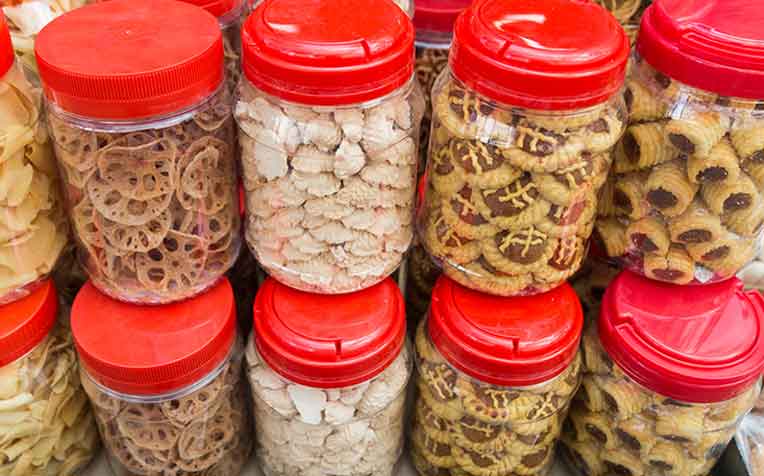
You can enjoy Chinese New Year goodies and still keep your blood sugar under control. The Department of Dietetics at Singapore General Hospital (SGH) offers tips how to. (iStock photo)
7 Tips to keep blood sugar under control during Chinese New Year
Ms Kala Adaikan, Principal Dietitian,
Department of Dietetics,
Singapore General Hospital (SGH), a member of the
SingHealth group, provides the following tips on keeping diabetes under control during Chinese New Year:
1. Eat a healthy breakfast before starting your house visits
Your breakfast should include complex (starchy) carbohydrates packed with lots of fibre (e.g. whole oats, multi-grain cereals, wholemeal bread), nuts and seeds. Starchy carbohydrates will release glucose into the blood stream at a slower rate compared to sugary foods.
2. Set a limit to the amount of festive goodies you can eat in a day
If you're unsure what limit you should set on the love letters and pineapple tarts, check with your doctor or your dietitian. Beware how easy the total carbohydrates consumed add up with every additional peanut cookie or 'kueh bangkit'.
Related article:
How much sugar and carbohydrates are in CNY treats? We've got the numbers
3. Skip the sugary canned drinks
Ask for tea, water or lemon water instead, or pick one with reduced sugar.
4. Spread out the carbohydrates throughout the day
Prevent sudden spikes in blood glucose levels by eating small, frequent meals.
Related article:
Recipe for healthy and tasty 'Lo Hei' salad – must try!
5. Cut down on your portions
If you must have
bak kwa, try a bite-size portion.
6. Snack on fruits, seeds and nuts
The complex (starchy) carbohydrates contained in fruits, seeds and nuts (e.g. sunflower seeds almonds, pumpkin seeds) will fill you up and make you less inclined to binge on the festive goodies.
7. Walk more
Exercise helps muscle cells to absorb blood glucose. So pick up your walking pace during the festive period. Walk 30 to 60 minutes every day.
Related article:
Walking and exercise tips to beat diabetes
--
Articles on
HealthXchange.sg are meant for informational purposes only and cannot replace professional surgical, medical or health advice, examination, diagnosis or treatment